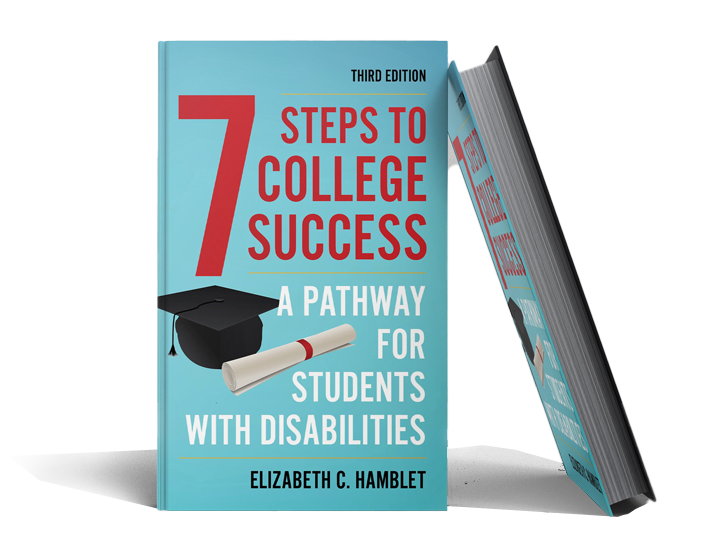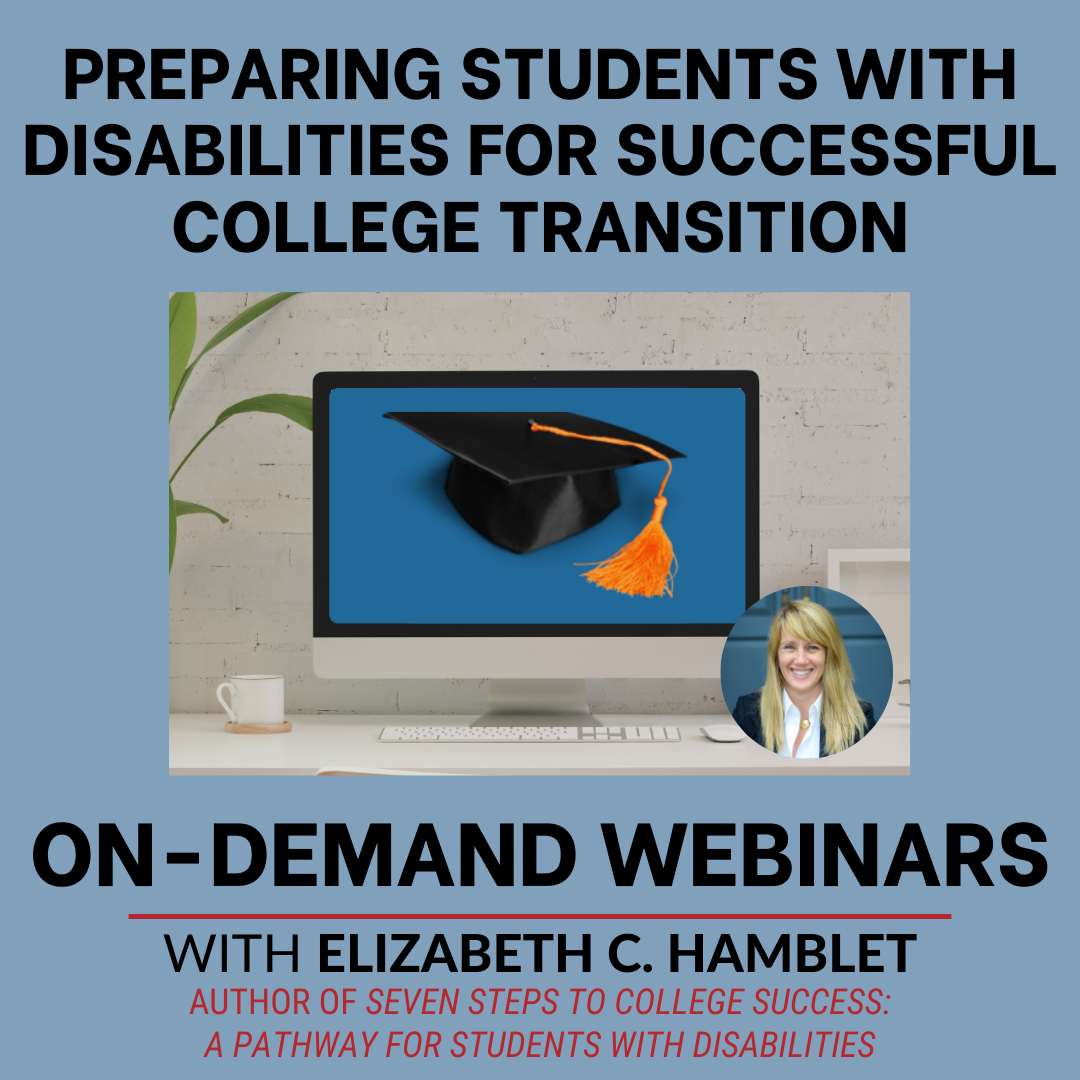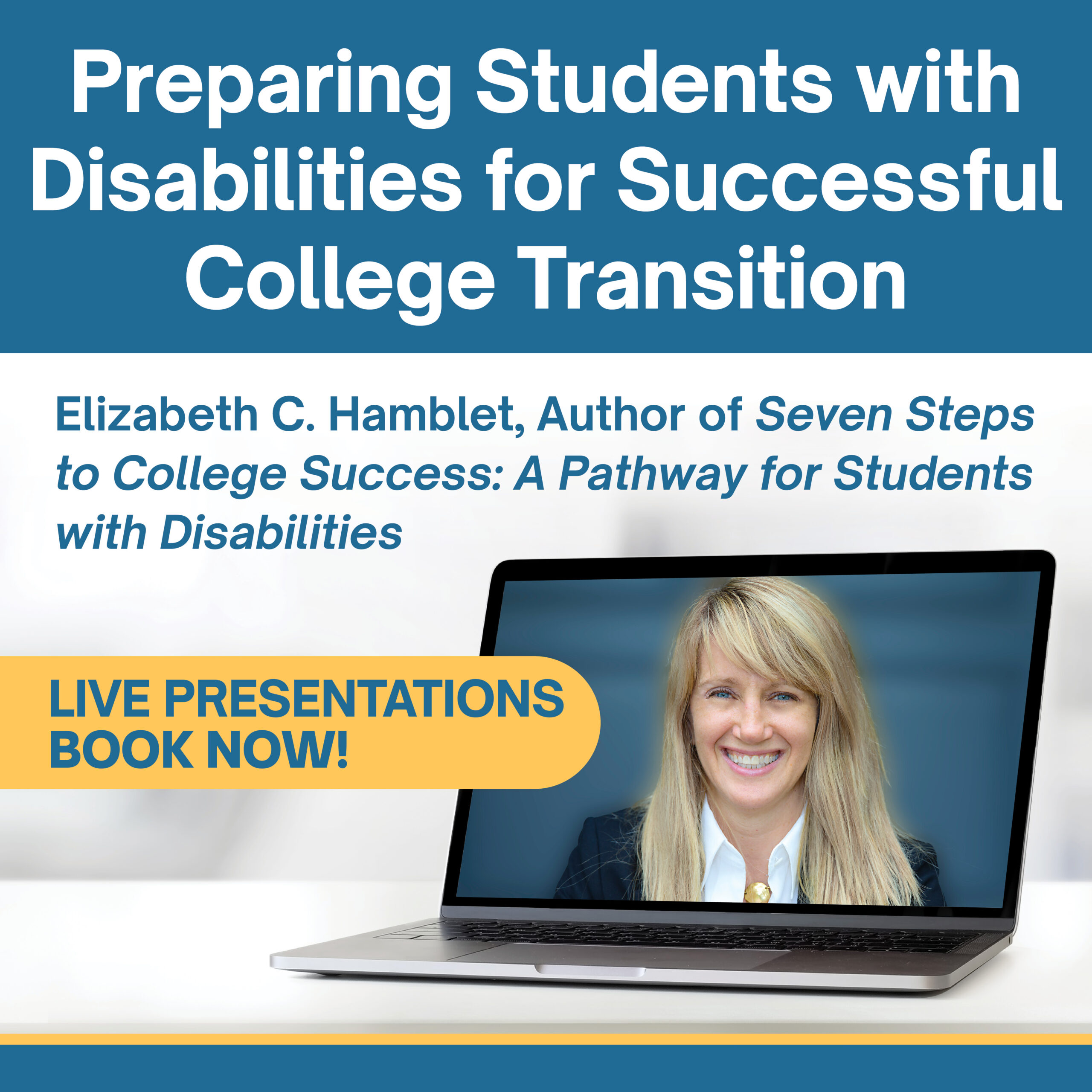Introduction
“My student’s college rejected his request for a memory aid for exams, but I saw online that a memory aid is an appropriate aid for dyslexia.”
A parent sent me the above message. Their student had been using a memory aid for tests in high school, and when the college did not approve them for this, the parent found a quote about memory aids online and found copies of two colleges’ policies about memory aids. The parent felt that the college had been wrong in rejecting their student’s request. I explained that there were probably several reasons why the school turned the student down for the memory aid, but I also encouraged the student to appeal the decision.
I retell this story to make a point – be careful not to over-interpret what you see online.
If you look at the webpages for some colleges’ disability services (DS) offices, you may see lists of accommodations that are available for students with learning disabilities and ADHD and for other disabilities. Since students typically have to ask DS for specific accommodations when they register with DS, such lists may be helpful in letting them know what is available. These lists may not always be exhaustive, meaning that they may include only the most-commonly requested and commonly-approved accommodations for that college’s office – not every accommodation the office makes.
An online search will point to accommodations lists that are provided by advocacy and education groups, or by individuals who work with high school students. It’s important to note that these lists may not have been created by people who have worked in DS offices. I mention this because – when I see some of these lists – they sometimes show a lack of understanding some of the nuances of the college accommodations system. They may list accommodations that are only granted to a small number of students in very particular circumstances, but they may not note this point, which can be unintentionally misleading.
Not all students are eligible for all available accommodations
As my exchange with this parent illustrates, it is important to approach these lists with an understanding of an unspoken caveat – that these accommodations are widely approved, but that doesn’t guarantee that every student who requests them will be approved for each one. DS offices typically approve accommodations when they can see a connection between the requested adjustment and students’ substantial limitation in an area of functioning (e.g., reading).
The example of this student’s request illustrates all of these principles.
The quote that the parent found online proclaimed that a memory aid would be an appropriate accommodation for dyslexia. The first issue to note with this statement is that while individuals with dyslexia are typically identified by their struggles with certain reading and language skills, every student with dyslexia has a different cognitive profile. Typically, colleges do not grant accommodations by “category.” For example, not every student with ADHD for example gets X,Y, and Z accommodations. Instead, decisions are usually based on each student’s particular area of weakness. (Watch this video to learn more.)
In addition, severity of the weakness will likely be a factor in DS’ decision. At some schools, the student may have to have very low scores on relevant measures. Students with very strong profiles that show only relative weaknesses among their own scores or even some whose profiles show weaknesses that fall within the Average range (which runs from 25% to 75%) may not be approved for some accommodations. (College DS offices get to make their own decisions about these things.) I don’t have the details on this particular student, but in this case, it is possible that he wasn’t approved because his scores on memory testing didn’t meet DS’ eligibility requirements for this accommodation.
Students may get accommodated for a disability but not receive the specific accommodation they requested
Another issue with the statement about providing a memory aid for dyslexia is that it assumes that a memory aid is an appropriate accommodation for every student who has dyslexia. But not everyone who has dyslexia has a memory issue.
Also, there are different types of memory, including rote, short-term/working, and long-term. Not all DS offices will see a memory aid as the only correct accommodation for students with different memory weaknesses.
For instance, a student with a working memory problem may be allowed to have extra scrap paper to allow her to work out math problems and/or extended exam time. It’s important to know that DS offices can make these decisions, and while they typically will consider students’ prior accommodations in their process, they aren’t obligated to provide such adjustments simply on the basis of students’ history. In the case of this student, his college’s DS office might not have seen a memory aid as relevant to his functional impairments and decided that history wasn’t enough to warrant approving it. (Read what kinds of accommodations DS directors say they typically approve and don’t)
To return to the two memory aid policies the parent found online – this points again to the fact that different colleges will have different policies. Accommodation policies must be reasonable, but colleges generally have a lot of discretion. Those documents represent the policies at those two particular colleges – they aren’t necessarily applicable to other colleges and shouldn’t be interpreted to mean that other colleges have to have the same policies.
Professors may have reasons why they don’t allow certain accommodations
Even if DS approves a student for an accommodation, be aware that it might not be allowed in every class. Certain DS-approved accommodations may not be allowed if professors can show they would fundamentally alter the class objectives. In many classes, mastery of content is what professors are assessing, and memory aids would not be considered appropriate. Students should know that if professors object to an accommodation approved by DS, they should make sure to contact their DS liaison so that they can contact the professors to discuss their objections. (There should a process at each college to review these objections.) In case of this parent’s student, since DS didn’t approve him for the memory aid, the conversation probably hadn’t progressed to this kind of discussion yet.
One of the policies the parent sent to me actually references the idea of fundamental alteration. It says, “This accommodation is not intended to reduce academic requirements or alter the standards by which academic performance is assessed.” It also says, “It is understood that some courses do not lend themselves to the use of cue sheets.”
Don’t miss this post’s intent
I don’t want to discourage any student from requesting any accommodation. Students should always ask for what they think they need – there’s always the possibility that they’ll get approved. And if their requests are not approved, they can file an appeal – DS offices have a process for this.
Instead, I just want to help readers be educated consumers of the information they see online. They should be encouraged by the numerous accommodations they see and also understand the individual nature of accommodation decisions.




